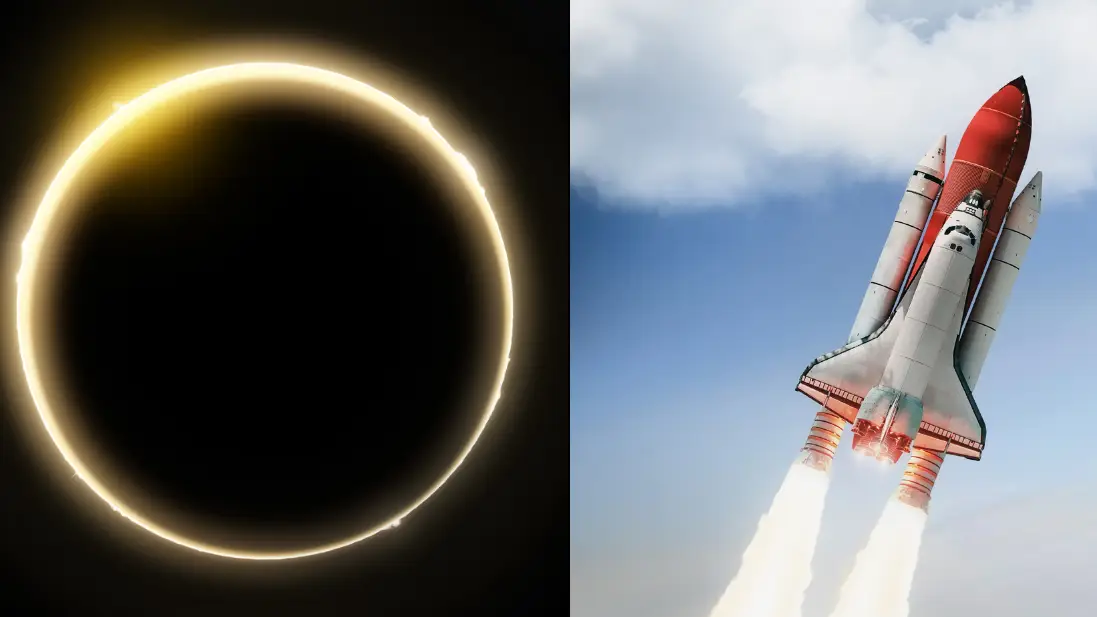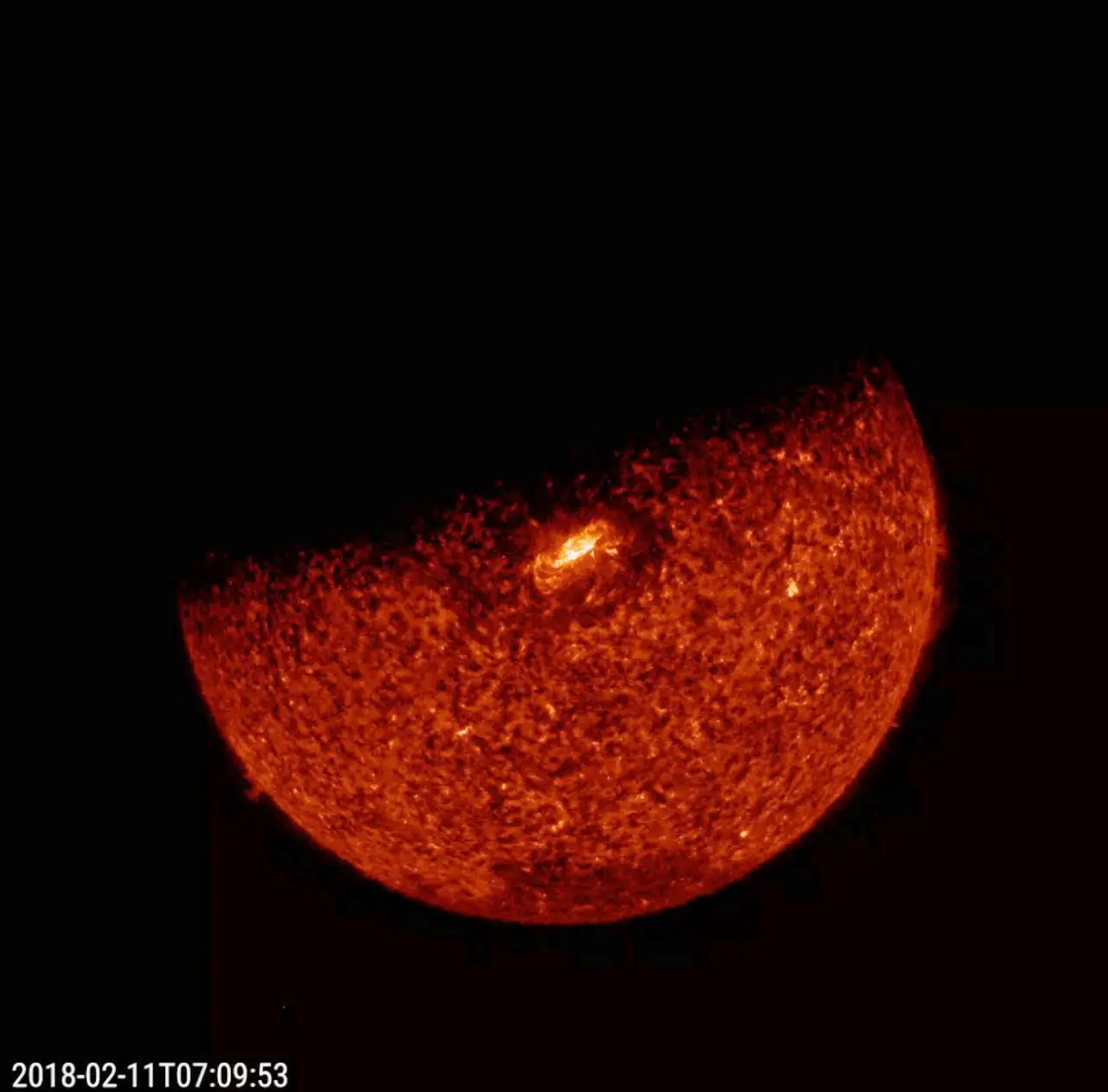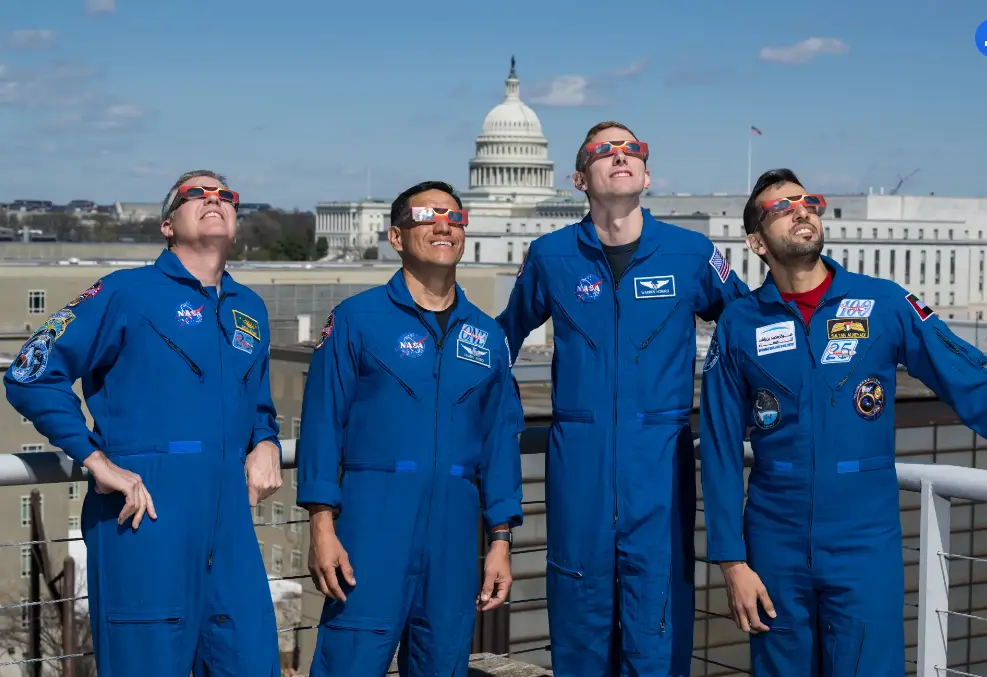
NASA is doing something incredible soon and will be taking full advantage of the upcoming solar eclipse.
The space experts have planned to launch rockets into its path, using the tiny window between the Sun and Moon as they cross paths for observation purposes.
According to NASA, it’ll look at ‘how Earth’s upper atmosphere is affected when sunlight momentarily dims over a portion of the planet’.
Advert
As millions of us are going to be able to see the rare sight of at least a partial eclipse, those in the US might even see some high-altitude planes and rockets too.
NASA’s rockets are planned to be launched from its Wallops Flight Facility in Virginia where they will be researching ‘disturbances’ in the Earth’s ionosphere.

Three rockets will be launched during the eclipse on 8 April, according to a spokesperson.
NASA explained: “The sounding rockets will launch at three different times: 45 minutes before, during, and 45 minutes after the peak local eclipse.
“These intervals are important to collect data on how the Sun’s sudden disappearance affects the ionosphere, creating disturbances that have the potential to interfere with our communications.”
These disturbances are caused when particles in the ionosphere become charged under the Sun’s radiation, however due to changes in the weather, it can make the ionosphere difficult to predict.
This is why the space agency will use the small window of opportunity during the eclipse to check out what’s going on up there.

NASA said: “It’s often difficult to study short-term changes in the ionosphere during an eclipse with satellites because they may not be at the right place or time to cross the eclipse path.
“Since the exact date and times of the total solar eclipse are known, NASA can launch targeted sounding rockets to study the effects of the eclipse at the right time and at all altitudes of the ionosphere.”
Recording information at a maximum altitude of 260 miles, the three rockets will 'measure charged and neutral particle density and surrounding electric and magnetic fields'.

Experts from the Air Force Research Laboratory in New Mexico, students at the Embry-Riddle Aeronautical University and researchers from the Massachusetts Institute of Technology’s (MIT) Haystack Observatory will each be conducting their own research into the event.
As there won’t be another total solar eclipse in the US until 2044, this is a very rare opportunity for them to explore what is happening in on the cusp of space.
Topics: NASA, Space, Science, Technology
